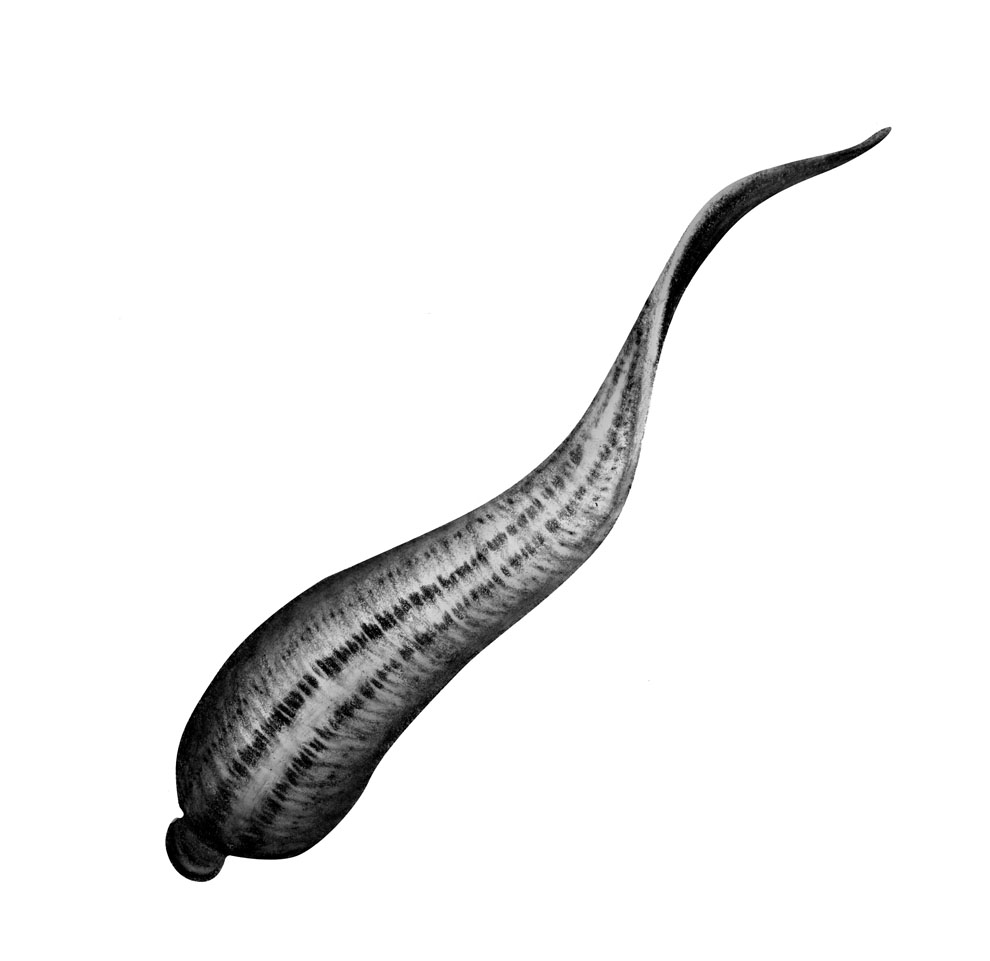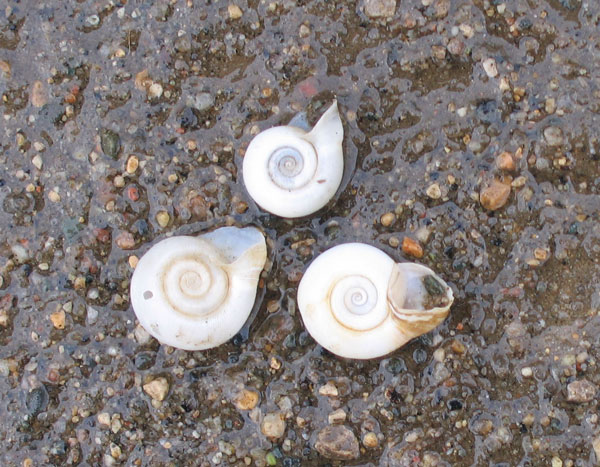What good are leeches and snails?
I've noticed that there are a lot of those little white
spiral shells along the beach this spring, which inspired me to talk about the
creepy crawlies in the lake that we often overlook.
Leeches and aquatic snails are commonly ignored and considered a
nuisance, but they are actually very important in our lakes.
Leeches and snails play a large roll in the lake ecosystem.
They are an important food source for aquatic animals including fish,
ducks, crayfish, and turtles.
 First,
I'd like to dispel some myths about leeches.
Not all leeches suck blood.
The large leeches we use to fish with, and the large leeches you see swimming in
very clear lakes are not parasites.
They are predators and eat insect larvae, aquatic worms and snails.
The suction cups at the ends of these leeches are used for locomotion on
substrates. These leeches are
harmless to humans.
First,
I'd like to dispel some myths about leeches.
Not all leeches suck blood.
The large leeches we use to fish with, and the large leeches you see swimming in
very clear lakes are not parasites.
They are predators and eat insect larvae, aquatic worms and snails.
The suction cups at the ends of these leeches are used for locomotion on
substrates. These leeches are
harmless to humans.
The type of leeches that are considered blood-suckers are
usually found in shallow areas where the water is calm and the bottom is mucky.
This type of leech prefers invertebrates and
other vertebrate hosts (fish, reptiles, and mammals) to humans, but if a human
is around, some of them will climb on for a meal.

Snails are important because
they eat algae and other organic debris at the bottom of the lake.
Snails actively "graze" a variety of surfaces, scraping their food
with a specially modified "tongue".
They maintain water quality and clean substrates for other bottom-dwelling
animals such as freshwater insects.
The little white spiral shells you see washed up on beaches are part of the lake
ecosystem.
That being said, there are some snails that are invasive
species, and not native to Minnesota.
New Zealand Mudsnails have been found in Lake Superior.
They out-compete species that are important forage for native trout and
other fish and provide little nutrition to fish that eat them.
You can see pictures of New Zealand Mudsnails online at:
http://www.seagrant.umn.edu/ais/newzealand_mudsnail.
Any time you take your boat out of a lake, check it over to make sure
there are no snails or plants stuck to the boat or trailer.
With all leeches and snails, it is important not to release
them into lakes and streams if you did not collect them there.
If you have extra bait leeches, just throw them away.
If you want to get rid of aquarium snails, throw them away or sell them.
Releasing these animals into a lake where you did not catch them can
disrupt the natural balance of species present.
Until next week, enjoy the lakes!
Moriya Rufer is the Lakes
Monitoring Program Coordinator for RMB Environmental Laboratories in Detroit Lakes, 218-846-1465,
lakes.rmbel@eot.com.
 First,
I'd like to dispel some myths about leeches.
Not all leeches suck blood.
The large leeches we use to fish with, and the large leeches you see swimming in
very clear lakes are not parasites.
They are predators and eat insect larvae, aquatic worms and snails.
The suction cups at the ends of these leeches are used for locomotion on
substrates. These leeches are
harmless to humans.
First,
I'd like to dispel some myths about leeches.
Not all leeches suck blood.
The large leeches we use to fish with, and the large leeches you see swimming in
very clear lakes are not parasites.
They are predators and eat insect larvae, aquatic worms and snails.
The suction cups at the ends of these leeches are used for locomotion on
substrates. These leeches are
harmless to humans.